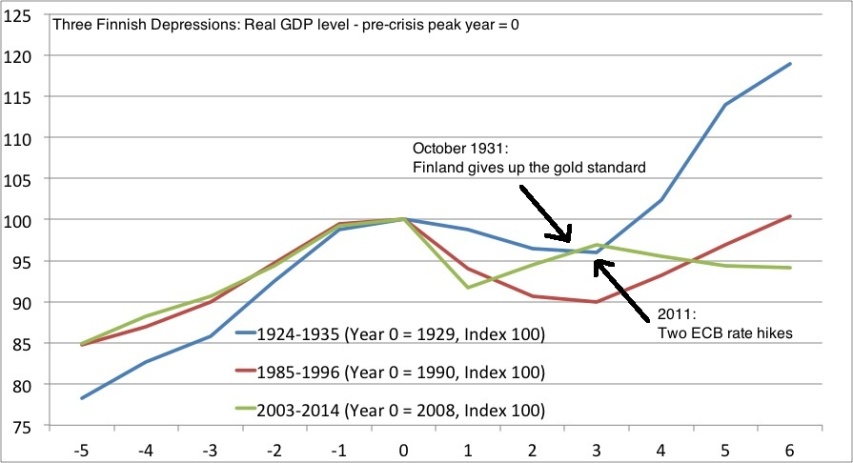 Andrew Krammer looks at the implications of Adrian Peterson’s six game suspension in the light of the Vikings’ planning for next season:
Andrew Krammer looks at the implications of Adrian Peterson’s six game suspension in the light of the Vikings’ planning for next season:
By April 15, the Minnesota Vikings had considerably narrowed down their NFL Draft prospects, had already signed their bulk of free agents and were well on their way to constructing the 2014 roster.
NFL commissioner Roger Goodell essentially made the Vikings’ decision for them, if they were even strongly considering keeping Adrian Peterson after 2014 to begin with. On Tuesday, Goodell suspended Peterson for the remainder of the 2014 season (six games) without pay, adding he can’t be reinstated until April 15, 2015 — well into the Vikings’ preparations for the next season.
If Peterson has any chance of being on the Vikings’ 2015 roster, it won’t be as a suspended 30-year-old running back with a $15.5 million cap hit.
He’s likely donned the purple as one of the franchise’s all-time best players for the last time on Sept. 7, unless a few circumstances play out: (1) Arbitrator Shyam Das would need to rule in favor of the NFLPA this week, saying the NFL had no grounds to keep Peterson on the Commissioner’s/Exempt list after his Nov. 4 plea deal was accepted by a Texas judge. (2) The Vikings, who released a statement in support of Goodell’s decision, would have to then activate Peterson against the grain of public relations backlash that forced their own change of course on Sept. 17 to initially get him on the CE list and (3) if Peterson has any shot of winning an appeal, it’ll come with a neutral arbitrator hearing his appeal and not Goodell, as ESPN.com’s Ben Goessling pointed out.
[…]
I have no doubt Peterson will play in the NFL again, I don’t believe it will be for the Vikings after this mess was made worse with Goodell’s handling and the way Peterson has been used as a pawn in a battle between the league and its union.
The first benchmark to watch is the start of the new league year in the beginning of March. If they cut him by then, they’ll avoid paying a $250,000 workout bonus.
Put your proverbial money on that happening if Goodell upholds his own suspension (likely) and if the Vikings are ready to move on after paying Peterson $7 million in 2014 base salary for 75 rushing yards.
Update: At the Star Tribune, Jim Souhan enjoys the spectacle.
The most artfully-written jokes are those that contain the punch line in the premise.
Like this one:
Adrian Peterson thinks his punishment is too harsh.
Tuesday morning, NFL Commissioner Roger Goodell suspended the Vikings star for the rest of the season without pay, meaning Peterson will not play for the Vikings again this season, and perhaps not ever.
Peterson’s case is bound to become a quagmire of legal positioning, union rights, management overreach and the ongoing course corrections of one of the most powerful people in sports.
There is one matter that remains clear.
A powerful football player took a branch and beat a 4-year-old until the boy bled through large welts on his back, suffered defense wounds on his hands, and took at least one lash to his genitalia.
Peterson deserves no sympathy, and anyone arguing that he is being unfairly prevented from finishing the season with the Vikings hasn’t done enough reading between the legalistic lines.
Peterson chose to be a legal pawn instead of a football king.
He has chosen to spend the rest of the season as a symbol of Goodell’s arrogance rather than a standout football player.
Peterson could have found his way back to Winter Park this season. His path was cleared by a lenient Texas court. Had he displayed remorse over his acts, and sought counseling, and thrown himself at Goodell’s feet, the commissioner likely would have levied a lighter sentence, perhaps even a retroactive one.
Instead, Peterson played into Goodell’s hands, and Goodell must have cackled at the opportunity presented to allow him to display strength.
Peterson showed no real remorse. He did not promise to change his behavior. He chose to side with the NFLPA and his legal team in challenging Goodell’s power.
If Goodell didn’t have Peterson, he would have invented him.








